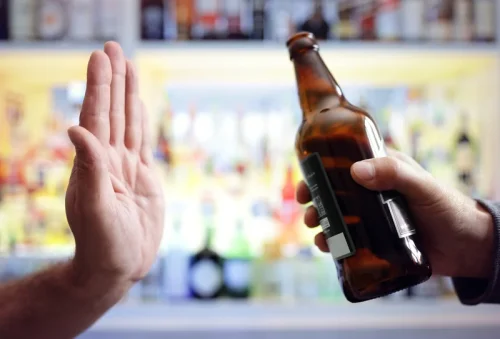- Tuesday March 7, 2023
What Is Motivational Enhancement Therapy MET?

Motivation can drastically help your confidence, understand your values, recognize your will power, and rebuild a new love of life that may have never before been present. Maintenance can also become difficult when the stress of life catches up with you and the old, familiar ways of coping—the addictive behavior—re-surface. This is why it is important to learn new ways of coping with stress during the action stage so that alternative strategies will be available to you during the maintenance stage. The action stage is the focus for many people attempting to overcome addiction.
- Clients’ nonadherence to treatment is often a sign that they are unhappy with the counseling process.
- Once these situations are identified, clients explore coping strategies to manage these triggers that have worked in the past and that might work now and in the future.
- Staying motivated in addiction recovery can be challenging when you feel overwhelmed by past mistakes or anxious about the future.
- In the realm of addiction recovery, personal stories and inspirational resources play a pivotal role in staying motivated.
- Attitude is “everything” because attitude really matters, in recovery and in life in general.
Opioid Addiction Treatment Terms and Definitions
Just as you would monitor and reevaluate a change plan with clients, revisit the coping plan, and modify it as necessary. Ask clients to rehearse coping strategies in counseling sessions and to try to implement those strategies in everyday life. For example, growing evidence shows that practicing mindfulness is an effective strategy for managing cravings and urges to use substances (Grant et al., 2017). If this coping strategy is new to clients, help them develop a change plan that might include attending a mindfulness class or group and practicing mindfulness at home or in a counseling session that focuses on managing cravings. Self- efficacy is important for changing substance use behaviors as well as sustaining those changes.
What Is Motivational Enhancement Therapy (MET)?
If a song is playing, turn the radio off, if you get a text from an old friend with whom you used to use substances, consider blocking the number. Of course, not every trigger can be avoided but coping with your life being different can help you build a new life filled with less painful reminders from the past. The maintenance stage is most challenging after a https://ecosoberhouse.com/ period of time has elapsed and the focus on reaching the goal has lost its intensity. People can become complacent at this point, and they may begin to think that a small lapse will make no real difference. When people are in the precontemplation stage, they are often not very interested in hearing about negative consequences or advice to quit their addiction.
Motivational Treatment Approaches
Taking a step back from events as an observer can help clients gain perspective and allow them the emotional and cognitive space to assess the situation before reacting. The AA slogan “think…think…think” aids in relapse prevention by providing a cognitive reminder to stop, look, and listen before reacting or taking action. Creating a relapse management plan that includes positive coping strategies to lessen the impact of a recurrence, if it happens, and avoid a full relapse. The MET approach was specifically developed for Project MATCH, an 8-year, national, multisite, clinical trial initiated in 1989 that compared three alcoholism treatment methods and included a 39-month followup period (Miller et al. 1992). Further research is warranted to determine which patients benefit most from brief intervention (DHHS 1997).

Finally, in the maintenance stage, the patient strives to avoid relapse by developing a lifestyle that supports the changes in his or her drinking. For successful recovery, patient motivation is important throughout the entire process, although it is an especially important focus during the first three stages. One of the best ways to sustain motivation for change in recovery is to focus on the benefits of sobriety.
- Whether you are in the initial stages of recovery from a substance use disorder and addressing mental health issues or navigating the long road of maintaining sobriety, understanding the importance of motivation is key.
- Counselors’ use of empathy, not authority and power, is key to enhancing clients’ motivation to change.
- I don’t want to sit at a dinner and listen to people get louder and repeat the same stories over and over.
- After all, it’s not just about reaching a finish line—it’s about the resilience, learning, and growth that happens along the way.
- Sober support networks are also available and consist of peers in recovery.
Cultivate a Growth Mindset
Neurochemical changes in the brain, such as the release of dopamine, play a significant role in reinforcing addictive behaviors. Psychological factors, such as the need for pleasure, stress relief, or coping with underlying emotional issues, can also contribute to the motivation for addiction. Additionally, social factors, such as peer pressure or environmental cues, can influence and reinforce addictive behaviors.
Take the Next Step in Your Recovery Journey

In the contemplation stage, the patient decides to change his or her behavior after weighing the positive and negative aspects of change. In the preparation stage, the patient increases his or her commitment to change and plans to take action. In the action stage, the patient develops specific behavioral strategies to change his or her drinking behavior.
- Overall, overcoming challenges and triggers in recovery needs perseverance, self-reflection, a strong support system, effective coping strategies, resilience building, and learning from setbacks.
- But with good preparation, it can also be an exciting time that gives way to new options.
- This may be because they have not yet experienced any negative consequences of their behavior, or it may be a result of denial about the negativity or severity of the consequences they have experienced.
- Whether it’s what you read or watch, the people you talk to, or your own self-talk, try to stay positive with uplifting news, people who encourage you, and thinking that’s going to help you meet your recovery goals.
Performing a cost benefit analysis (CBA) helps individuals weigh the positives and negatives of a behavior, facilitating motivation, decision-making, and progression from precontemplation to the contemplation and preparation stage of change. Attitude describes the way we think or feel recovery motivation about something or someone. It comprises a viewpoint, an outlook, or a perspective that typically affects a person’s behavior. Attitude affects how you treat other people, how you look at life, how you respond to challenges, and often whether you succeed or fail in any endeavor.
By recognizing these changes and utilizing methods to overcome challenges, people can build their resilience and strengthen their resolve to remain steadfast on the path to healing. The therapist may present data that shows the benefit of abstinence and even question the goal of moderation if the client desires that, but MET allows for the client to choose their own recovery goals. This is an important distinction, as many programs for addiction give a diagnosis and state expectations of removing the substance entirely. MET and other motivational therapies focus on autonomy and respect for the client. During a relapse, the client returns to substance misuse and temporarily exits the change cycle. The counselor focuses on helping the client reenter the cycle of change and providing relapse prevention counseling in accordance with the principles of person-centered counseling.

Many people mistakenly believe that motivation should always be high and unwavering. There will be days filled with enthusiasm and clarity, and others where apathy and confusion reign. Accepting this fluid nature of motivation, rather than resisting it, can be the first step in ensuring that it remains a constructive force in your addiction recovery journey. It’s the internal or external push that propels us to act, change, and persevere. Everyone has their own unique sources of motivation, ranging from personal ambitions to external rewards. However, it’s essential to recognize that motivation is not a constant—it ebbs and flows.
